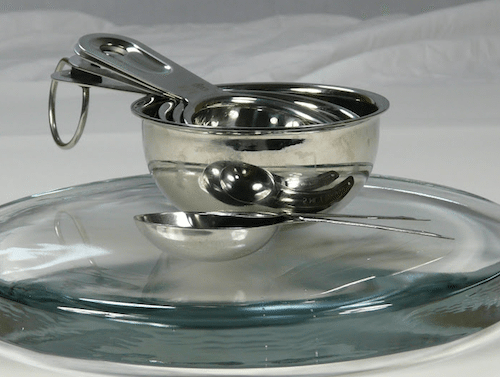What Makes a Chef?
 What makes a chef? Do you need to be a trained professional in order to teach a cooking class and call yourself a chef?Home chefs are generally self-described and love to cook at home. A professional chef, on the other hand, has to have commanded a professional kitchen. Think hotels, clubs, restaurants, etc. The work experience is what provides the actual chef credential. If a chef works in a highly rated workplace -- like a famous restaurant, expensive club, or high end hotel like Caesar's, Hyatt, etc -- generally that means that the chef is also highly rated and experienced. Working in the restaurant industry is very difficult, and it takes years of dedication to reach a high position. Becoming a chef in a highly rated workplace is based on talent, management, and hard work under pressure. Not everyone can do it. People have to be able to create great dishes and make a lot of them, all while teaching and managing and inspiring other people. Plus, chefs spend hours and hours on their feet in suboptimal conditions. It is easy to make a fun chicken dish at home using Williams-Sonoma cookware and plates, but it is another story to put out 500 excellent banquet dinners on the fly.A chef who attends a good culinary school can move through the ranks more quickly than a chef who does not. Culinary school experience is extremely valuable. For example, attending the Culinary Institute of America opened a lot more doors a lot more quickly for me. I have the PC II after my name because I passed the incredibly rigorous ProChef 2 test at the Culinary Institute of America. Studying for several months in Switzerland with Pastry Chefs Albert Kumin and Ewald Notter also had a huge impact on my career and cooking skills. A European background or time in Europe is a great tool that can help aspiring chefs reach their goals. Keep in mind, however, that talent is a factor, and it really cannot be taught.So, if you're looking to take a cooking class, find out about the chef's experience. Is the chef the editor of a prestigious book or magazine? Does he or she have creative ideas to impart? Is the chef a professional educator at a great school? Does he or she have years of experience in the industry? If the answer to any of those questions is yes, then I would take the class. :)By Judy Doherty, PC IIFor More Information:http://www.ciachef.edu/Judy's Tale of Becoming a CIA ProChef II
What makes a chef? Do you need to be a trained professional in order to teach a cooking class and call yourself a chef?Home chefs are generally self-described and love to cook at home. A professional chef, on the other hand, has to have commanded a professional kitchen. Think hotels, clubs, restaurants, etc. The work experience is what provides the actual chef credential. If a chef works in a highly rated workplace -- like a famous restaurant, expensive club, or high end hotel like Caesar's, Hyatt, etc -- generally that means that the chef is also highly rated and experienced. Working in the restaurant industry is very difficult, and it takes years of dedication to reach a high position. Becoming a chef in a highly rated workplace is based on talent, management, and hard work under pressure. Not everyone can do it. People have to be able to create great dishes and make a lot of them, all while teaching and managing and inspiring other people. Plus, chefs spend hours and hours on their feet in suboptimal conditions. It is easy to make a fun chicken dish at home using Williams-Sonoma cookware and plates, but it is another story to put out 500 excellent banquet dinners on the fly.A chef who attends a good culinary school can move through the ranks more quickly than a chef who does not. Culinary school experience is extremely valuable. For example, attending the Culinary Institute of America opened a lot more doors a lot more quickly for me. I have the PC II after my name because I passed the incredibly rigorous ProChef 2 test at the Culinary Institute of America. Studying for several months in Switzerland with Pastry Chefs Albert Kumin and Ewald Notter also had a huge impact on my career and cooking skills. A European background or time in Europe is a great tool that can help aspiring chefs reach their goals. Keep in mind, however, that talent is a factor, and it really cannot be taught.So, if you're looking to take a cooking class, find out about the chef's experience. Is the chef the editor of a prestigious book or magazine? Does he or she have creative ideas to impart? Is the chef a professional educator at a great school? Does he or she have years of experience in the industry? If the answer to any of those questions is yes, then I would take the class. :)By Judy Doherty, PC IIFor More Information:http://www.ciachef.edu/Judy's Tale of Becoming a CIA ProChef II


